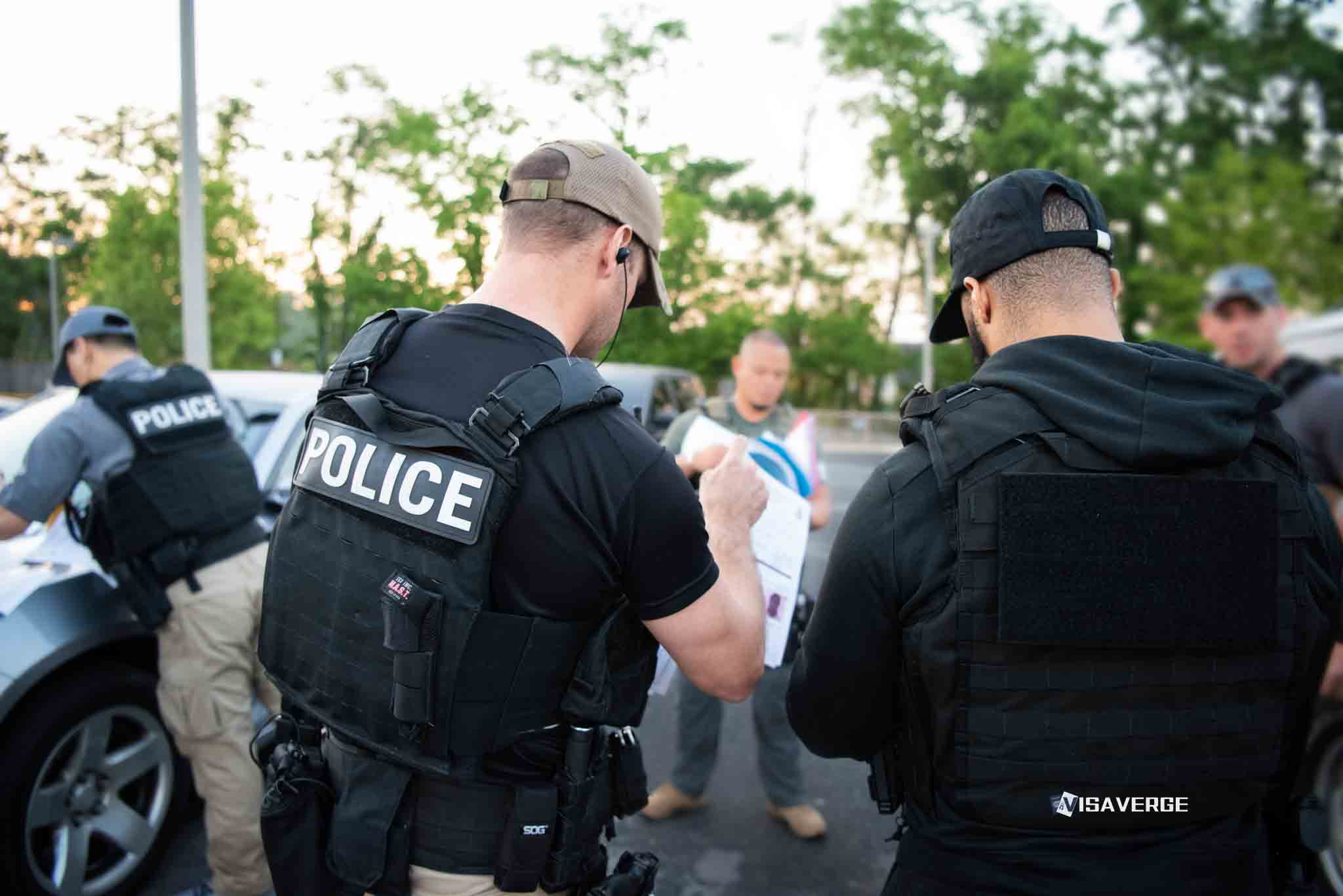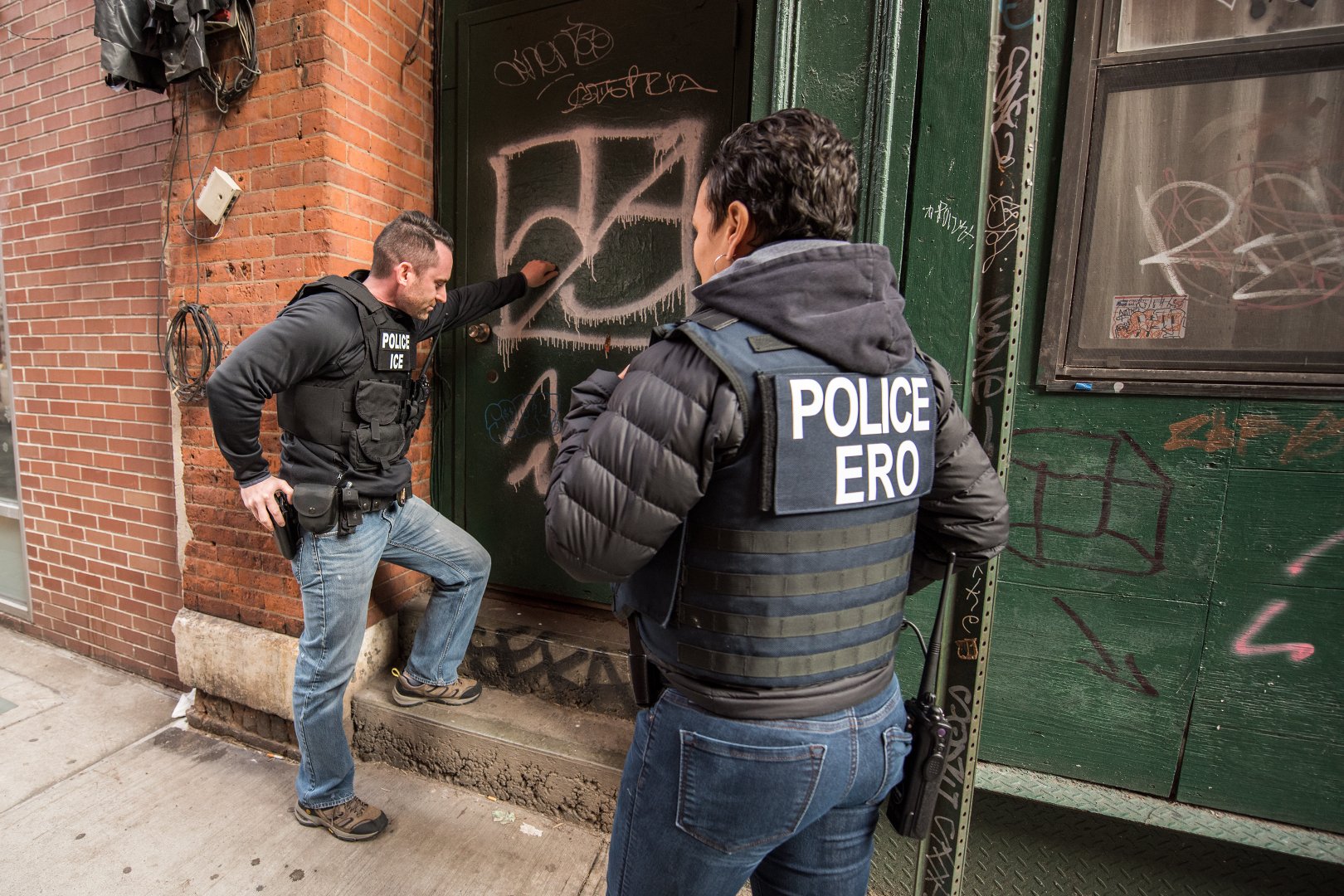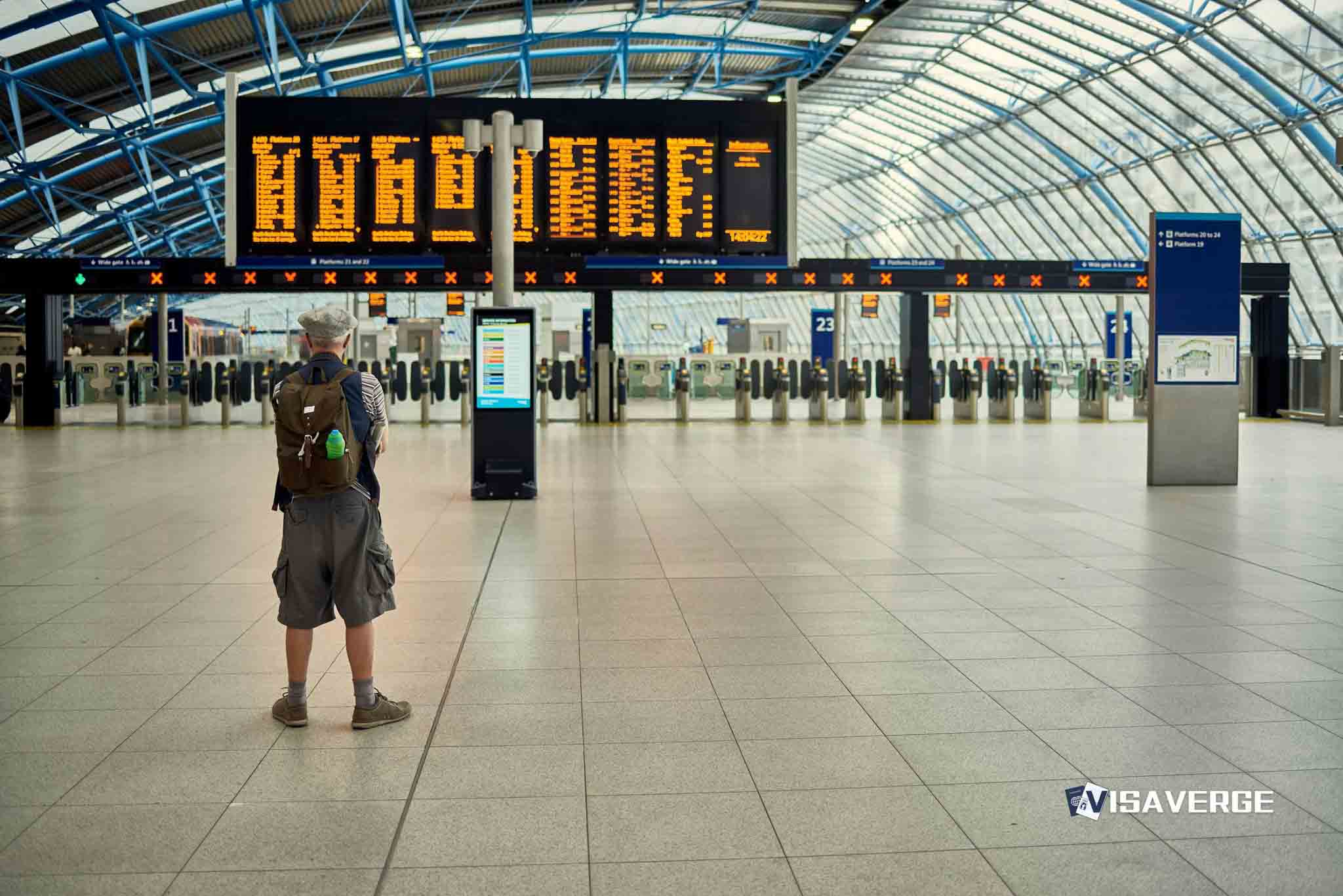Key Takeaways
• Supreme Court blocked Trump’s fast-track deportation of Venezuelan migrants under the Alien Enemies Act on May 16, 2025.
• The decision mandates sufficient notice and due process for detainees, impacting the Bluebonnet Detention Facility in Texas.
• President Trump sharply criticized the ruling, claiming it hinders immigration enforcement and public safety.
President Trump has unleashed strong criticism on the Supreme Court after it blocked his administration’s efforts to deport Venezuelan migrants under the Alien Enemies Act of 1798. This heated exchange marks another setback for the Trump administration’s immigration policies since President Trump returned to the White House in January 2025. The recent Supreme Court decision, handed down on May 16, 2025, has drawn national attention and ignited debate among politicians, lawyers, migrant rights groups, and communities watching immigration policy unfold.
The Supreme Court Blocks Deportations: What Happened and Why?

On May 16, 2025, the Supreme Court issued a 7-2 decision that kept in place an earlier order temporarily stopping the Trump administration from deporting Venezuelan migrants held in a detention center in Anson, Texas. Most of these men had not been told clearly or early enough about their right to challenge their removal from the United States 🇺🇸. The decision directly affects Venezuelan migrants held at the Bluebonnet Detention Facility, giving them more time to pursue legal challenges and preventing immediate expulsion.
The court’s unsigned order made it clear that migrants deserve enough time and information to use their legal rights before being deported. The justices wrote, “Notice roughly 24 hours before removal, devoid of information about how to exercise due process rights to contest that removal, surely does not pass muster.” In this statement, “due process rights” simply means the basic legal right to argue your case before something serious—like deportation—happens to you.
It’s important to point out that only Justices Samuel Alito and Clarence Thomas disagreed with this outcome, while all three justices whom President Trump appointed during his first term joined with Chief Justice John Roberts and the court’s three liberal justices. Because of this decision, the Trump administration cannot use the Alien Enemies Act to rush through deportations of Venezuelan migrants—at least for now. The Supreme Court did not totally shut down Trump’s policy but told the lower courts to look more closely at whether people get fair treatment.
This isn’t the first time the courts have crossed swords with President Trump over his immigration ideas since his return to office. The temporary order from April and this follow-up ruling both emphasize the importance of fairness, notice, and the right to be heard—key ideas at the heart of the American justice system.
President Trump’s Strong Response to the Ruling
The Supreme Court’s decision struck a nerve with President Trump, who took to social media outlets to make his feelings known. He wrote on Truth Social, “THE SUPREME COURT WON’T ALLOW US TO GET CRIMINALS OUT OF OUR COUNTRY!” President Trump also shared on X (formerly Twitter) in a message full of capital letters: “THE SUPREME COURT IS BEING PLAYED BY THE RADICAL LEFT LOSERS, WHO HAVE NO SUPPORT, THE PUBLIC HATES THEM, AND THEIR ONLY HOPE IS THE INTIMIDATION OF THE COURT, ITSELF. WE CAN’T LET THAT HAPPEN TO OUR COUNTRY!”
He argued that the ruling ties the government’s hands, making it difficult to enforce immigration rules and remove people he described as “murderers, drug dealers, and gang members.” President Trump described this day as “bad and dangerous for America,” insisting that the government will now have to use a “long, protracted, and expensive Legal Process” to deport those in question. He accuses the Supreme Court of siding with political opponents whom he labels “radical left losers,” painting the decision as a major blow to his administration’s efforts to control who can stay in the country.
These statements made headlines and have been widely discussed, not only for their harsh criticism of the Supreme Court but also for their portrayal of the deportation debate as a fight against crime and threats to public safety. However, many legal experts and immigrant advocates have pushed back on the idea that faster deportation always equals better security or justice, especially if the people being removed never get a real chance to defend themselves.
The Alien Enemies Act: An Old Law, a New Conflict
The center of this dispute is a law from 1798—the Alien Enemies Act. This law dates back to a time when the United States 🇺🇸 feared attacks from foreign countries. It lets the president remove or detain people from countries the United States 🇺🇸 is at war with. The last major time it was used was during World War II, when Japanese-Americans were detained. Bringing this old law back today has been met with alarm by many historians and legal experts, who worry about treating people unfairly just because of where they come from.
According to reports, President Trump used the Alien Enemies Act in March 2025 to order the deportation of the first group of alleged members of Tren de Aragua (TdA)—a group labeled as a foreign terrorist organization by U.S. authorities—to a prison in El Salvador. Critics argue that this action ignored basic steps that make sure people are not unfairly sent away. Some Venezuelan migrants’ lawyers have said their clients were labeled as gang members without real proof, sometimes just because of tattoos. This lack of evidence and a fair process is what drove the American Civil Liberties Union (ACLU) to file a legal challenge, arguing everyone deserves a chance to defend themselves before losing the life they have built in the United States 🇺🇸.
The legal fight over the Alien Enemies Act has now become a test of how far the government can go in the name of national security and which rights apply to people facing deportation. As reported by VisaVerge.com, this is not just a technical legal question—it touches on the lives of thousands of people and the kind of country the United States 🇺🇸 wants to be.
Due Process: What Does It Really Mean for Venezuelan Migrants?
The phrase “due process” forms the heart of this dispute. Simply put, it means the government must respect basic legal rights before it takes action that could change your life, such as removing you from the country. The Supreme Court’s decision in this case said the Trump administration moved too fast, not giving detained Venezuelan migrants enough time or information to fight back against deportation. Getting only 24 hours’ notice—or even less—meant many could not find a lawyer, understand the rules, or gather evidence that might help them stay.
For the affected Venezuelan migrants, this decision is a lifeline. Many are fleeing violence or political chaos in their home country. If they don’t get a real chance to explain their cases, some could end up in danger if sent back. Even those not at risk face being separated from family, friends, or work here. The Supreme Court’s message was simple: everyone deserves a fair shot, especially when the stakes are so high.
This legal protection is not limitless, but it’s a foundation of the American legal system. Allowing quick and quiet removals, as the Trump administration wanted, cuts against the idea that everyone gets their “day in court.” Legal groups such as the ACLU pointed out that forcing migrants out with just one day’s notice, and no clear instructions on how to challenge the removal, leaves almost no real option to fight back.
Broader Impacts for Immigrants, the Courts, and Policy Across America
This decision has wide effects. It doesn’t just impact the handful of Venezuelan migrants at the Texas detention center. It might also influence how future governments handle mass deportations or use old laws like the Alien Enemies Act. Legal scholars say the Supreme Court’s ruling is a reminder that even during times of anxiety over security or crime, the rules of fairness and legal process can’t be tossed aside easily.
For other immigrants, especially those who worry about being suddenly swept into deportation proceedings, this case sends a message that the courts can act as a check on fast and harsh government moves. It also gives people time to find lawyers and understand their rights. For the Department of Homeland Security and immigration judges, there is now more pressure to provide clear explanations and enough notice before trying to remove someone.
At the same time, the Trump administration and its supporters say that these court actions slow down enforcement of the country’s immigration laws and make it harder to stop crime. They believe that giving everyone a full legal process, no matter their background, means fewer people are removed and public safety may be put at risk. This debate is likely to continue, with both sides pointing to the public good as their main concern.
Political and Historical Context
President Trump’s efforts to use the Alien Enemies Act highlight a bigger pattern in his approach to immigration. During his first term and now again in office, Trump has often argued for tougher actions, fewer steps in the removal process, and using every law available to speed up deportations. Opponents, meanwhile, warn that these measures can hurt innocent people and damage the ideals of fairness and justice that the United States 🇺🇸 stands for.
There’s also a historical lesson here: earlier uses of the Alien Enemies Act, like during World War II, are now widely seen as unjust and a dark mark in the nation’s past. Legal historians worry about repeating those mistakes today, especially when the law is used against groups—like Venezuelan migrants—who are not actually at war with the United States 🇺🇸. The fear is that future presidents, not just President Trump, might reach for old, harsh laws if today’s ruling is not clear about limits.
The Road Ahead: What Happens Next?
After the Supreme Court’s ruling, the case returns to the lower courts for a closer look at how much notice and what kind of legal process is really fair when the government tries to deport people using the Alien Enemies Act. The migrants involved will have new chances to argue their cases. Other similar efforts by the Trump administration will probably face more legal tests, and more immigrants may come forward asking for their rights.
For now, the Supreme Court’s order holds, and the administration must give adequate warning and information before trying to remove detainees. This delays large-scale deportations of Venezuelan migrants and gives lawyers for affected families more time to act.
This story also shows how, in the world of immigration law, court decisions can quickly shape lives, government policy, and even the reputation of the Supreme Court itself. The highly public fight between the Trump administration and the court will likely push lawmakers and voters to pay closer attention to what powers presidents have and how those powers are checked by judges.
If you want to read the full Supreme Court opinion or keep up to date with official rulings, you can find the documents on the Supreme Court’s official website.
Conclusion
In blocking the Trump administration’s fast-track deportations of Venezuelan migrants using the Alien Enemies Act, the Supreme Court has made clear that the rules of fairness, notice, and due process are bigger than any one president’s wishes—no matter what the politics of the moment might be. While President Trump and his supporters believe the country must act quickly to remove those they see as threats, the justices—joined by some Trump appointees—say that everyone deserves a level playing field under the law.
The decision is a major moment in the ongoing story of American immigration, showing once again that the courts play a central role in deciding who gets to stay, who must go, and what standards must be followed. As cases continue, and as the Trump administration tries new approaches, all eyes will remain on how the balance between security and justice plays out—especially for vulnerable groups like Venezuelan migrants. Future policy, court decisions, and even elections could be shaped by how this struggle unfolds.
For anyone affected or interested in more details about immigration law and court processes, resources like the official U.S. Citizenship and Immigration Services website provide up-to-date legal information. In these fast-changing times, staying informed is one of the best ways to understand your rights and options.
Learn Today
Alien Enemies Act → A 1798 U.S. law allowing detention or deportation of people from countries the U.S. is at war with.
Due process → Legal principle guaranteeing individuals fair treatment and chance to challenge government actions before losing rights.
Bluebonnet Detention Facility → A detention center in Anson, Texas, currently holding detained Venezuelan migrants affected by the court ruling.
ACLU (American Civil Liberties Union) → A U.S. organization advocating for civil rights, defending migrants’ rights to legal process in this case.
Tren de Aragua (TdA) → A criminal group labeled foreign terrorist organization by U.S. authorities, central to Trump’s deportation efforts.
This Article in a Nutshell
The Supreme Court’s May 16, 2025, decision blocks President Trump’s quick deportations of Venezuelan migrants. Citing the Alien Enemies Act, Trump faced backlash after ignoring due process. This pivotal verdict emphasizes fairness and adequate notice, highlighting the ongoing legal and political conflict over immigration policy in the United States.
— By VisaVerge.com
Read more:
• Trump Deports Venezuelans Without Trial Amid Torture Claims
• Venezuelan Gang Killer Walks Free Under Biden Policies
• Alien Enemies Act Lets Trump Expel Venezuelans Linked to Gang
• Trump Administration Pressures Supreme Court to Deport Venezuelan Migrants
• Trump’s Deportation Agenda Splits Venezuelans in U.S.













